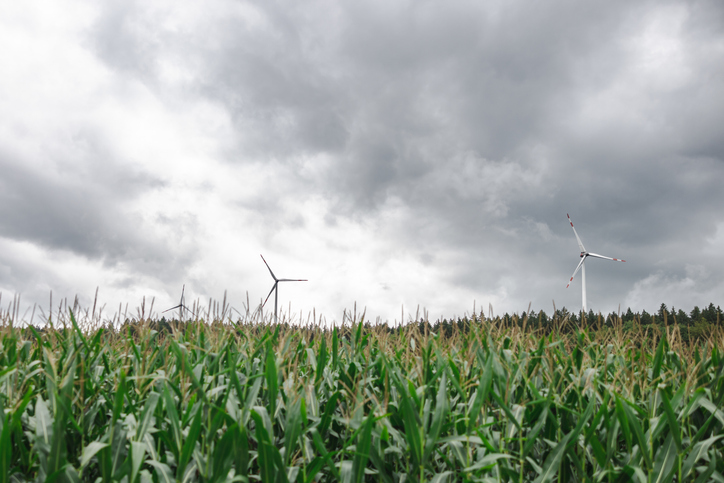During the past 40 years, Wisconsin has lost more than 40,000 dairy farms. Small and medium dairy farmers throughout the state are struggling to stay afloat with environmental concerns, workforce shortages, and government policies that favor large-scale agriculture. Last week, AEM member company DeLaval joined the AEM State Advocacy Team for a day of meetings in the Wisconsin Capitol to talk to lawmakers about problems impacting the state's dairy farmers and solutions afforded through modern dairy technology.
Leveraging AEM’s Environmental Benefits of Modern Dairy, Hay, and Forage Production Technologies study, the meetings aimed to educate lawmakers on the benefits of precision agriculture technology and discuss incentives to get these technologies into the hands of Wisconsin farmers. A key point raised during these meetings was that helping small and medium farmers obtain the latest dairy milking system technologies will have significant positive impacts on the economy, animal welfare, and the environment.
Late last year, with the help of the AEM’s Dairy and Manure Leadership groups, the AEM State Advocacy Team drafted a model bill, which would create a grant program for small and medium Wisconsin farmers to invest in new and innovative dairy technology. This draft bill was based on the successful Iowa legislation which established the Iowa Dairy Innovation Fund. In Wisconsin, AEM is in the process of identifying an author and cosponsors for the bill. In the upcoming months, AEM will continue to meet with legislators, the Department of Agriculture, and dairy associations to educate and push this initiative forward.
What are the impacts and benefits of modern dairy and manure technology?
Labor Efficiency
A major challenge facing dairy farmers today is simply finding enough labor. Advanced technologies such as robotics or rotary parlors increase labor efficiencies by 40-100%, requiring a smaller workforce. Advanced technologies also create a greater interest in dairy related jobs due to the reduced number of repetitive tasks and cleaner work environment.
Improved Animal Welfare
New monitoring systems enhance animal health by preventing disease and enabling faster diagnosis when disease does occur. Most modern milking machines come with automated mastitis protection and precision teat sprayers to help keep the teats free from pathogens.
Environmental Enhancements
Compared to 15 years ago, modern dairy and feed production systems have afforded farmers the ability to improve milk yield by 6%, decrease feed use by 4%, decrease land use by 13%, decrease GHG emissions by 8%, and decrease water use by 6% --leading to environmental improvements and cost savings.
To learn more about precision agriculture incentives in other states or to get involved in AEM’s advocacy efforts, please reach out to the AEM Advocacy Team.
Subscribe to the AEM Industry Advisor for more AEM news and updates.





